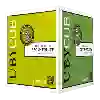
Winery Villa DriaAvant Première
This wine generally goes well with vegetarian, rich fish (salmon, tuna etc) or shellfish.
Food and wine pairings with Avant Première
Pairings that work perfectly with Avant Première
Original food and wine pairings with Avant Première
The Avant Première of Winery Villa Dria matches generally quite well with dishes of rich fish (salmon, tuna etc), shellfish or vegetarian such as recipes of irish tartiflette, squid rings with tomato or light tuna-tomato quiche (without cream).
Details and technical informations about Winery Villa Dria's Avant Première.
Discover the grape variety: Gamay Fréaux
Gamay Fréaux noir is a grape variety that originated in France (Burgundy). It produces a variety of grape specially used for wine making. It is rare to find this grape to eat on our tables. This variety of grape is characterized by small bunches, and grapes of small to medium size. The Gamay Fréaux noir can be found in several vineyards: South-West, Cognac, Bordeaux, Rhône valley, Provence & Corsica, Loire valley, Savoie & Bugey, Beaujolais, Armagnac.
Informations about the Winery Villa Dria
The Winery Villa Dria is one of of the world's great estates. It offers 18 wines for sale in the of Côtes de Gascogne to come and discover on site or to buy online.
The wine region of Côtes de Gascogne
The wine region of Côtes de Gascogne is located in the region of Comté Tolosan of Vin de Pays of France. Wineries and vineyards like the Domaine Sichel or the Domaine Haut-Marin produce mainly wines white, red and sweet. The most planted grape varieties in the region of Côtes de Gascogne are Colombard, Gros Manseng and Merlot, they are then used in wines in blends or as a single variety. On the nose of Côtes de Gascogne often reveals types of flavors of red fruit, tangerine or jam and sometimes also flavors of watermelon, pomegranate or lemon grass.
The wine region of Comté Tolosan
Comte Tolosan is a PGI title that covers wines produced in a large area of Southwestern France. The PGI basin encompasses 12 administrative dePartments and is home to a wide range of appellations d'origine contrôlée (AOC) such as Jurançon, Cahors and Armagnac. The IGP label provides a geographical classification for wines that are not classified for AOC level appellations due to Grape variety or winemaking style. The region is part of the Aquitaine basin - the plains that lie between the Pyrenees, the Massif Central and the Atlantic Ocean to the west.
The word of the wine: Peduncle
The stem of a flower or fruit.












